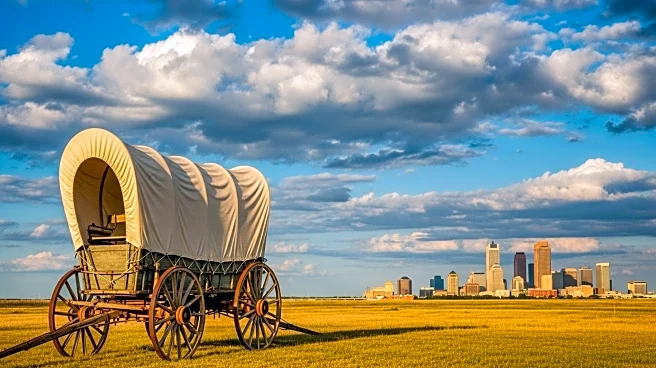Oklahoma, a state rich in history and culture, has a legacy that is deeply intertwined with the American frontier spirit. Known as the "Sooner State," Oklahoma's legacy began with the Land Rush of 1889, which opened up vast tracts of land to settlers. This event marked a significant turning point in the state's history, setting the stage for its development into a modern state. Today, Oklahoma is recognized for its contributions to the energy sector, agriculture, and Native American culture.
Scope of Legacy
Oklahoma's legacy is vast, encompassing its role in the American frontier, its rich Native American heritage, and its contributions to the energy sector. The state's history is marked by the Land Rush of 1889, which saw thousands of settlers claim land in what was then Indian Territory. This event is a pivotal part of Oklahoma's legacy, symbolizing the state's role in the westward expansion of the United States.
Pivotal Contributions
Oklahoma has made significant contributions to various sectors, including energy and agriculture. The state is a major producer of oil and natural gas, playing a crucial role in the energy industry. Additionally, Oklahoma's agricultural sector is a vital part of its economy, with wheat, cattle, and poultry being major products. The state's contributions to Native American culture are also noteworthy, with Oklahoma being home to numerous tribes and cultural institutions.
Enduring Influence
The influence of Oklahoma's legacy is evident in its cultural and economic landscape. The state's history of settlement and development has shaped its identity, with the Land Rush of 1889 being a defining moment. Oklahoma's energy sector continues to be a significant part of its economy, while its cultural contributions, particularly in Native American heritage, remain influential.
U.S. Relevance
Oklahoma's legacy is relevant to the broader United States due to its historical significance and economic contributions. The state's role in the westward expansion and its energy production are important aspects of its national relevance. Additionally, Oklahoma's rich Native American culture adds to the diversity and cultural heritage of the United States.

 Discover Daily
Discover Daily 






